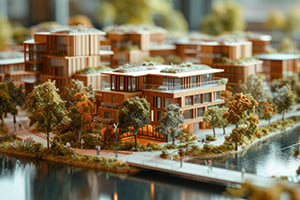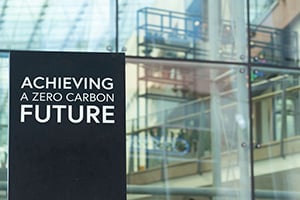By Ariana Nieves,
Sustainable Investment Group (SIG)
What are Food Deserts?
 Food deserts are areas where citizens have little to no suitable access to reasonably priced and nutritious food. These areas are commonly found in communities where low-income and high poverty are prevalent.
Food deserts are areas where citizens have little to no suitable access to reasonably priced and nutritious food. These areas are commonly found in communities where low-income and high poverty are prevalent.
According to the USDA’s report issued in 2017, about 39.4 million people live in low-income and low-access areas. Additionally, about 19 million U.S citizens are currently living in food deserts.
Generally, food deserts are found within urban and rural African American and Hispanic communities and are a systemic issue dating back to the 1960s. For a more in-depth look at food deserts and the country’s food insecurity crisis, click here.
A New Solution?
A company called Framlab is trying to solve this long-reigning issue with a project called “Glasir.” The project aims to provide an automated, vertical farm structure that offers affordable, local produce year-round for neighborhoods in urban food deserts.
The structure comprises “greenhouse-like cubes” and is organized to resemble a tree. These modular vertical farms can then be placed anywhere around the city because they take up little space.
How it Works
Glasir “combines the flexibility of modularity with the efficiency of aeroponic growth systems.” An aeroponic system allows the farm to use up to 90% less water than traditional methods. The watering system creates a misty, high humidity environment for the plants to grow without needing soil and allows them to grow faster and absorb more nutrients.
Any required energy for the modular farm is obtained through photovoltaic cells (the cell panels convert the Sun’s thermal energy into electricity). The structure also has a rainwater collection system that retains, purifies and circulates water to the plants. Additionally, the tree-like form has an outer coding of titanium oxide that extracts pollutants from the air to reduce air pollution.
Could this be the Future of Food Security in America?
It is estimated that each modular vertical farm can produce 48,000 pounds of produce each year. The Glasir project is now being implemented in the city of Brooklyn, New York, to test its efficacy in reducing urban food deserts. If successful, this could become a viable way to ensure communities across America have access to fresh produce and healthy food options.
Sources:
https://www.framlab.com/glasir
© 2022 Sustainable Investment Group (SIG). All rights reserved.



